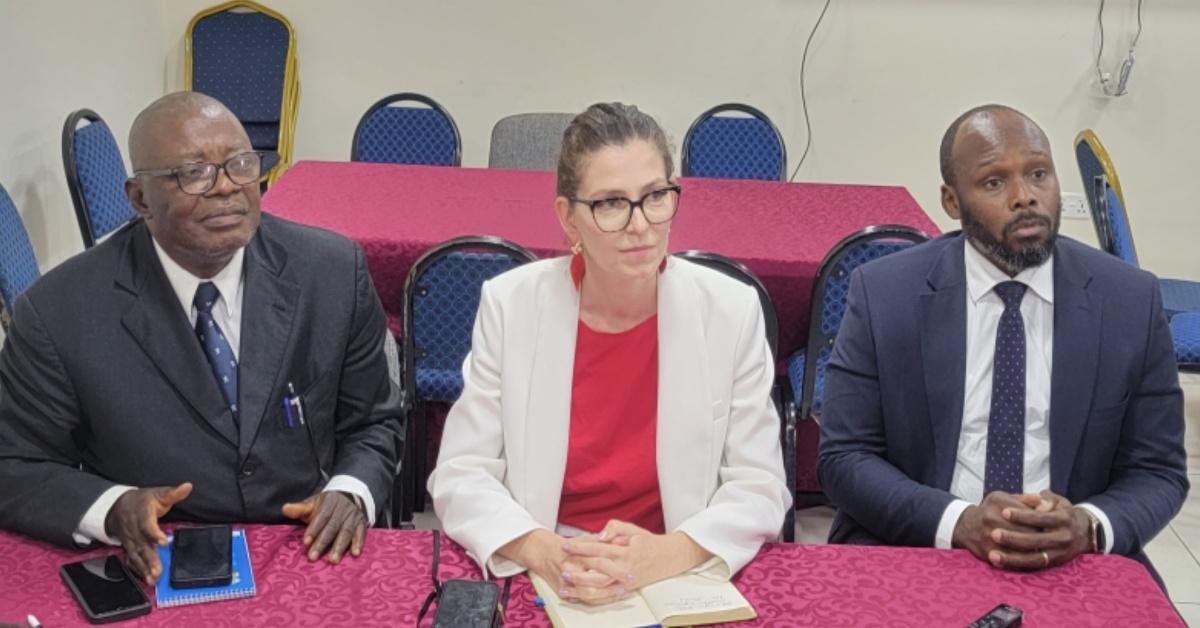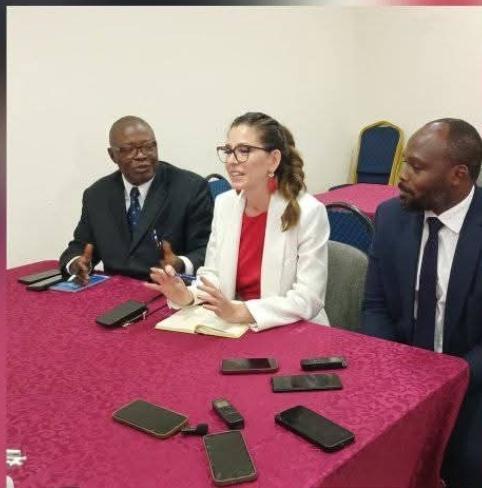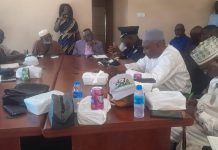Africa-Press – Sierra-Leone. On Monday, October 13, 2025, Health Alert Sierra Leone convened a high-level briefing bringing together representatives from GAVI, the Vaccine Alliance, the Expanded Programme on Immunisation (EPI), and media stakeholders.
Held at the Brookfields Hotel in Freetown, the meeting provided timely updates on GAVI’s joint appraisal visit to Sierra Leone, which aims to assess progress, identify challenges, and reinforce the country’s immunization strategies.
Speaking during the engagement, Maria, GAVI’s Senior Country Manager based in Geneva, Switzerland, explained that GAVI is a global health partnership dedicated to protecting children from preventable diseases by improving access to life-saving vaccines and strengthening health systems.
She noted that GAVI has been a strong and long-standing partner to Sierra Leone, providing over $250 million in support since the partnership began, with a current portfolio valued at approximately $59 million. This support covers vaccine procurement, solar-powered cold chain equipment, technical assistance, and targeted interventions for zero-dose and under-immunized children.
“Sierra Leone has achieved remarkable immunization coverage, exceeding 90%. Our shared focus now is to sustain these gains and ensure that every child no matter where they live receives life-saving vaccines,” Maria emphasized.
She commended the government’s commitment to immunization, particularly its growing domestic financing, which she described as vital for maintaining progress. While GAVI will remain a key partner, she highlighted that national ownership and commitment are crucial for long-term sustainability especially given tightening global health funding.
Maria also underscored that immunization remains one of the world’s best investments, generating $54 in economic benefits for every $1 invested. “Investing in vaccines is both a moral imperative and an economic necessity,” she said. “It leads to healthier children, reduced healthcare costs, a productive workforce, and sustainable national development.”
Looking ahead, Maria revealed that beginning January 2026, GAVI will continue supporting Sierra Leone’s vaccine procurement in collaboration with the government, alongside co-financing arrangements. Support for health system strengthening and cold chain infrastructure will also continue. However, she cautioned that cash-based support is expected to decline due to reduced global resources, making sustainability and government leadership even more essential.
She stressed that the next phase requires Sierra Leone to focus on efficiency, value for money, and better data utilization to identify and reach under-immunized children. “Civil society organizations play an invaluable role in this effort they are the bridge to the communities, helping us identify zero-dose children, communicate the importance of vaccination, and ensure follow-up,” she added.
Maria also described her district site visits as the most insightful aspect of GAVI’s appraisal, highlighting the dedication of local health workers who continue to deliver vaccines under challenging circumstances. She noted that Sierra Leone’s high coverage rates make it imperative to now focus on reaching the last mile children in nomadic settlements, slum areas, and hard-to-reach communities.
Dr. Desmond Maada Kangbai, Programme Manager for the Expanded Programme on Immunisation (EPI), reaffirmed the Government of Sierra Leone’s leadership in achieving consistent 90% coverage over the years. He credited this success to strong government investment, institutional leadership, and a dedicated EPI workforce.
He acknowledged GAVI’s significant contribution toward reaching zero-dose children and strengthening immunization systems through consistent field visits and technical support.
“Immunization remains one of the most cost-effective public health interventions,” Dr. Kangbai stated. “It has drastically reduced maternal and infant mortality rates in Sierra Leone by preventing diseases such as measles and diarrhea.”
Dr. Kangbai further explained that the government continues to meet its vaccine co-financing obligations and plans to establish a dedicated budget line for immunization by 2026. This move, he said, will strengthen funding for vaccination campaigns and routine services.
Currently, about 98% of health facilities nationwide offer immunization services, thanks to government investment in human resources.
He also revealed that the government is exploring pre-financing vaccine procurement for two years to prevent stock-outs, with discussions to include the proposal in the 2027 budget or a supplementary budget.
Dr. Kangbai commended partners for recognizing the transparency and accountability of Sierra Leone’s EPI programme, as seen during recent district monitoring visits. He highlighted the resilience and commitment of health workers in remote areas and reiterated the government’s determination to close the remaining 5% immunization gap through data-driven and targeted interventions.
He called for continued collaboration among government, media, civil society, and development partners to sustain Sierra Leone’s progress and ensure that no child is left behind.
The high-level briefing concluded with a shared commitment among GAVI, the Ministry of Health, and civil society partners to maintain Sierra Leone’s impressive immunization achievements.
Despite global financial challenges, all stakeholders agreed that strong government ownership, data-driven strategies, and sustained partnerships will be key to protecting every child from preventable diseases and ensuring a healthier, more equitable Sierra Leone.

For More News And Analysis About Sierra-Leone Follow Africa-Press







